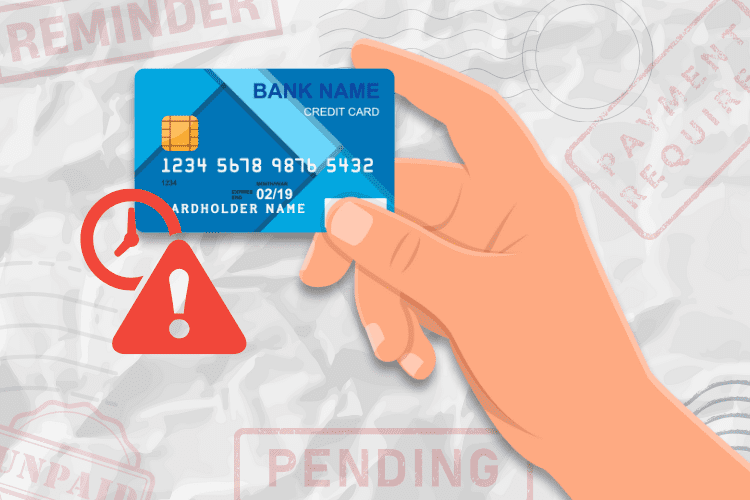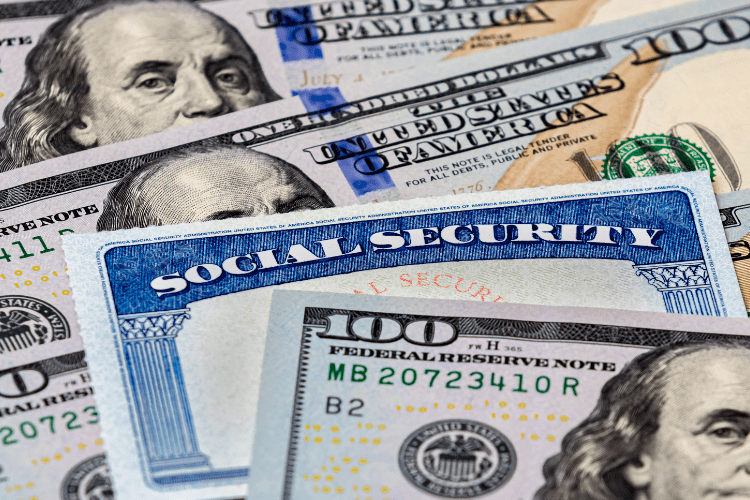Americans Hit $1 Trillion In Credit Card Debt. Why Is This A Problem?

Many of us have been relying on credit cards to get by to handle the rising living costs.
And while they’re valuable tools when we use them correctly, recent findings suggest that the US has officially passed a staggering $1 trillion in credit card debt, with the average household owing around $10,000 each.
How did we get this far?
Let’s go through the details, see what experts are saying, and find out how to keep your credit card debt to a minimum.
Recent Credit Card Debt Trends
Credit card spending has become the norm in most American households in the last few years.
The recent pandemic, rising prices, and global events have caused prices to skyrocket worldwide.
Unfortunately, most families haven’t been able to keep up, forcing them to take out record debts to manage their daily expenses.
But external circumstances aren’t the only things to blame.
Many credit experts have seen many people nationwide making severe financial mistakes when taking out credit card debt.
Over time, these decisions leave them unable to pay their bills, creating a vicious cycle that’s hard to break.
Why Is $1 Trillion In Credit Card Debt Alarming?
A trillion dollars in credit card debt is not just a number. It’s a massive wake-up call that many Americans are living beyond their means and can’t afford their daily necessities.
More communities nationwide are finding it increasingly difficult to live without borrowing money, impacting their long-term finances.
Over time, it affects the economy, causing higher interest rates and lowered credit scores.
How Does Credit Card Debt Affect Your Finances?
On a personal level, having a high credit card balance can significantly impact your financial well-being.
As Allison Hill warns consumers, maintaining balances over 50% of your credit limit sends red flags to banks and credit bureaus, causing a drop in your credit score.
Paying only the minimum amount also leads to accumulated interest, inflating the original debt, prolonging the repayment period, and keeping you stuck in a debt trap for far longer.
How To Effectively Handle Your Credit Card Debt
As credit card debt keeps ballooning, now’s the time to learn how to avoid falling into unhealthy habits with a few key steps:
1. Never Spend More Than You Can Afford
The golden rule of financial stability is to buy only what you can afford. Keep a budget, keep your spending in check, and leave your impulse buys till after the bills are paid. This way, you can automate your finances better and won’t run into unwanted surprises.
2. Watch Out For Interest Rates
Understanding your credit card’s interest rates before you sign up is crucial. When they’re too high, it’ll inflate your balance over time. These extra fees make it harder for you to pay it off. The average APR is 28.05%, so anything below that is considered favorable.
3. Avoid Minimum Payments
Making only the minimum payments on your credit card balance may seem like you’re moving forward. But remember, the longer you take, the more interest you’ll need to pay.
Always send more than the minimum to pay everything off faster and avoid unnecessary interest.
The Bottom Line
Credit card debt is a serious issue affecting millions of American families daily.
And now that we just hit a trillion dollars, it’s a sign that it may take some time before the economy bounces back.
But despite the doom and gloom, there are practical ways to use your credit card wisely. Spend responsibly, watch out for high rates, and always try to pay off as much as you can.
This way, you’ll reap the rewards of using a credit card and keep your bank account healthy!
Read More:










